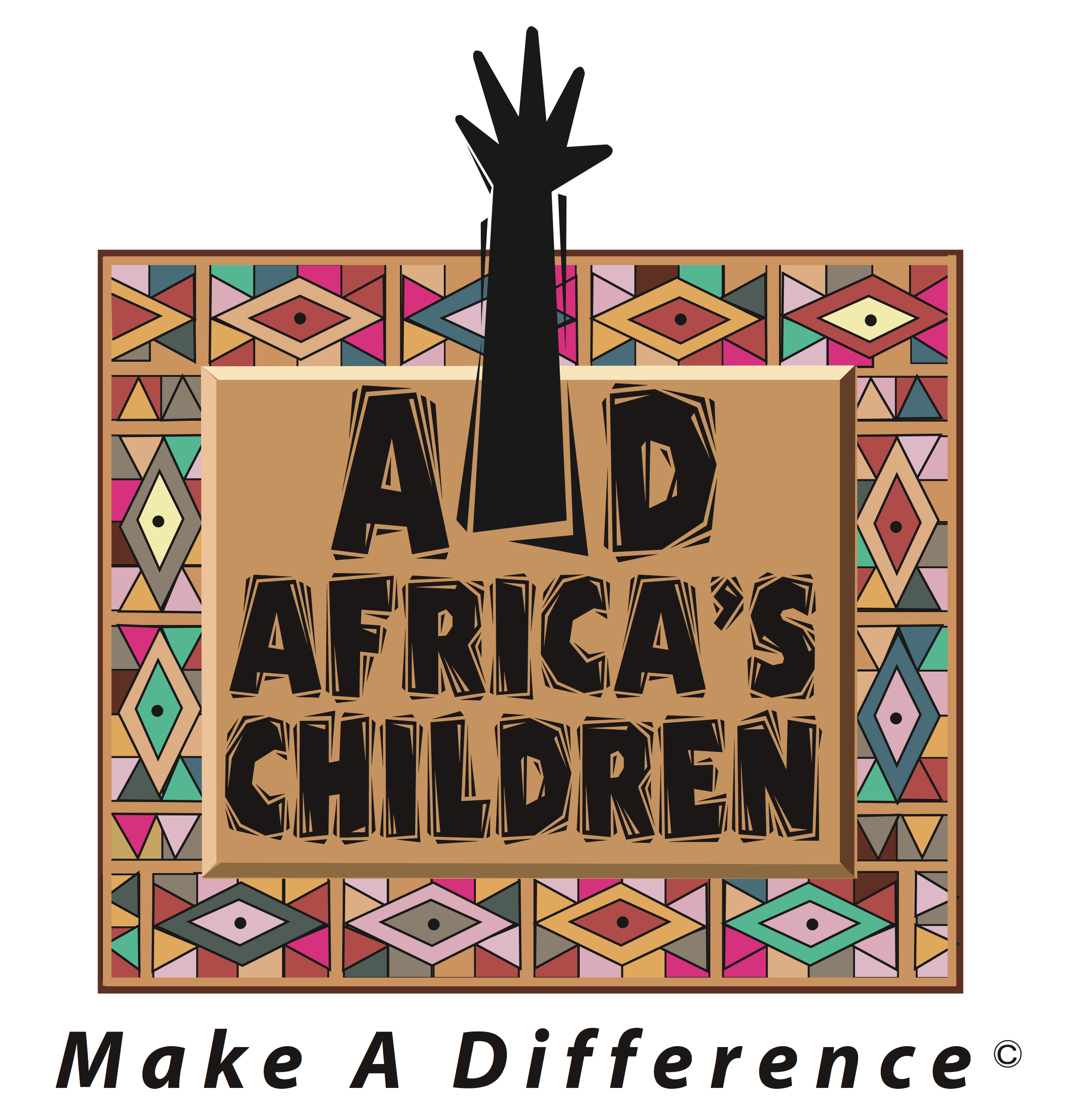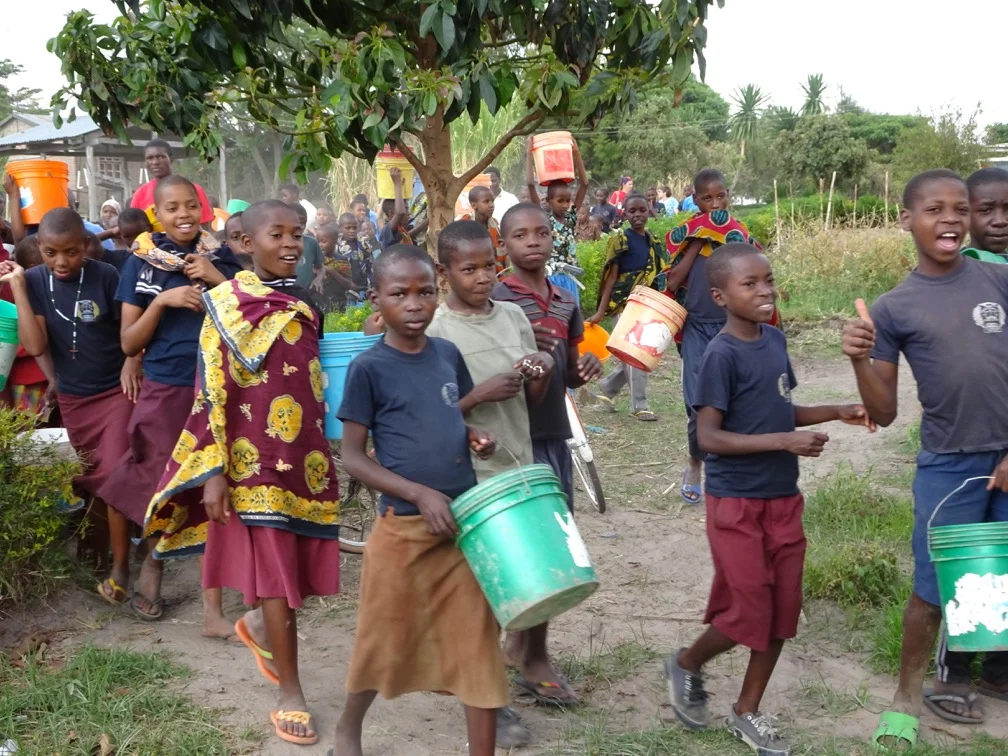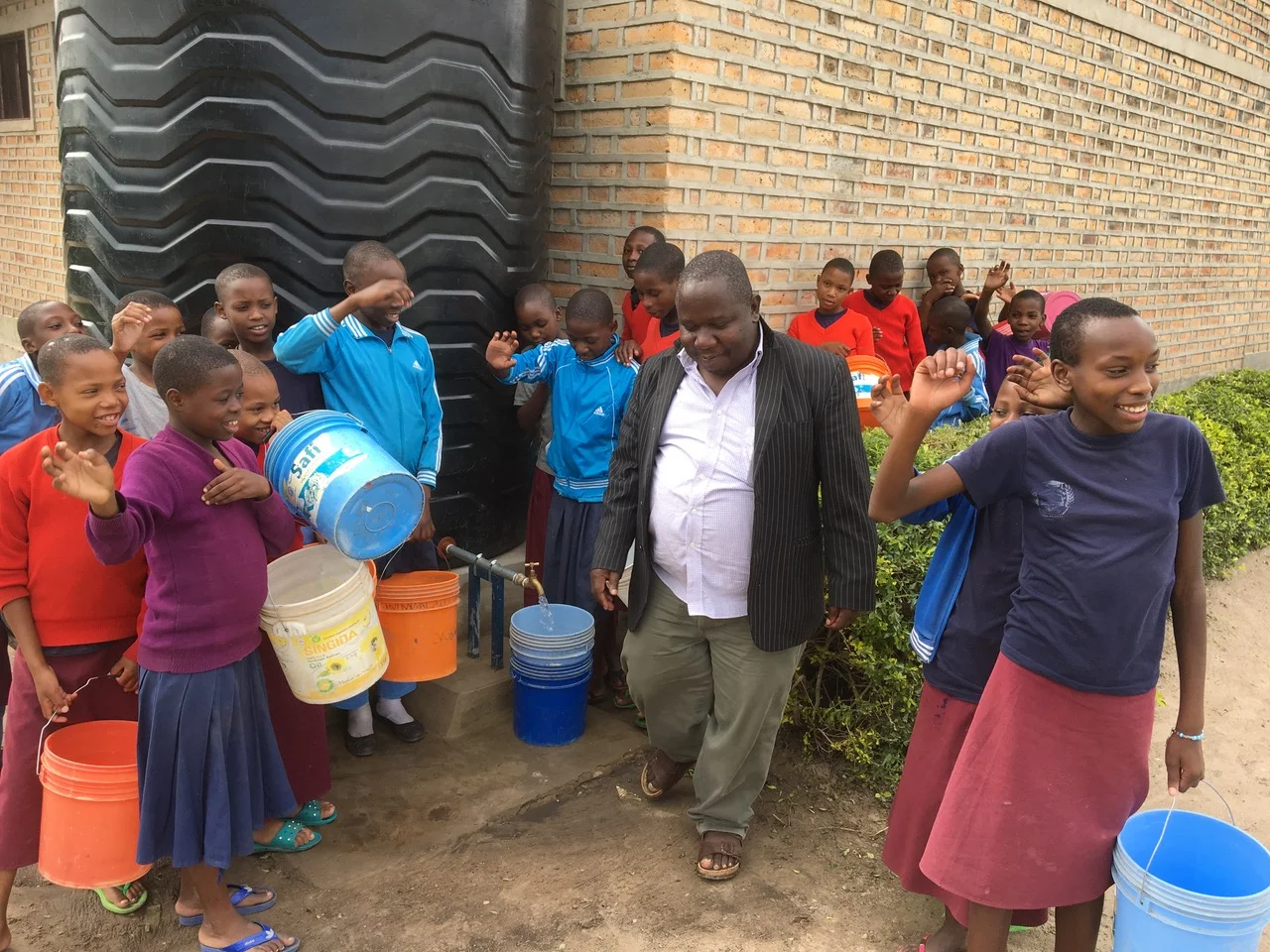Sub-Saharan Africans Spend 40 Billion Hours a Year Collecting Water
A United Nations 2014 report stated, “in Sub-Saharan Africa, people spent 40 billion hours a year collecting water, equivalent to a year’s worth of labour by the entire workforce of France.” Women, children and mostly young girls are responsible for obtaining water for their families.
Aid Africa’s Children’s projects focus on making a difference in people’s daily lives. We help give them the tools to create a stronger and more productive future for their community.
In Africa, when your main responsibility is to gather water, the back-breaking hours and 4-6 mile walk, sometimes performed 2-3 times per day, prevents many from getting an education. Without an education, life’s opportunities are severely limited. Very young girls (between 10-15 years of age) are pressured into forced marriages to feed their parents and siblings. As a 3rd or 4th wife, they will live a life of servitude.
Without water, crops cannot grow. Valuable food resources are lost. Hunger and malnutrition increase. Basic hygiene practices cannot be sustained due to lack of water creating unsanitary conditions that breed illness. Making the connection between a community’s lack of access to clean water and poverty is critical to breaking this vicious cycle of poverty.
Village children marching to local water hole outside of Ntemba Village in Mvimwa, Tanzania.
Today, Aid Africa’s Children’s new rainwater collection systems is changing lives in Tanzania. At St. Placidus Mvimwa Primary School in Tanzania, the former 4-6 mile trek for water is now a 1/2 mile walk for the locals. Clean water access for everyone reduces illness caused by poor hygiene. For children and especially young girls, economic opportunities will be possible by pursuing an education instead of spending hours retrieving water for their families daily needs.



